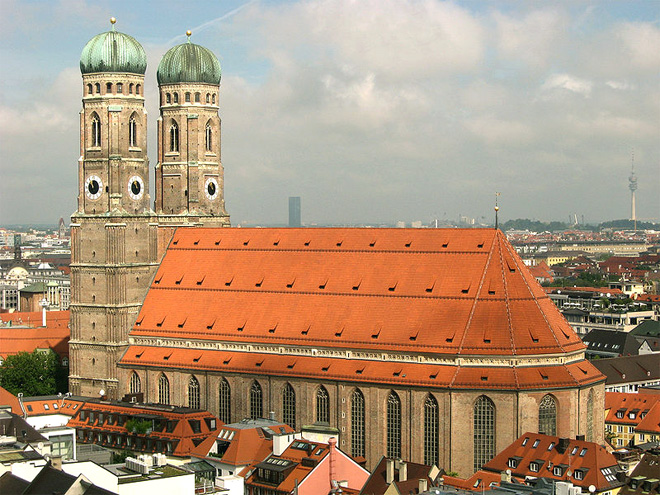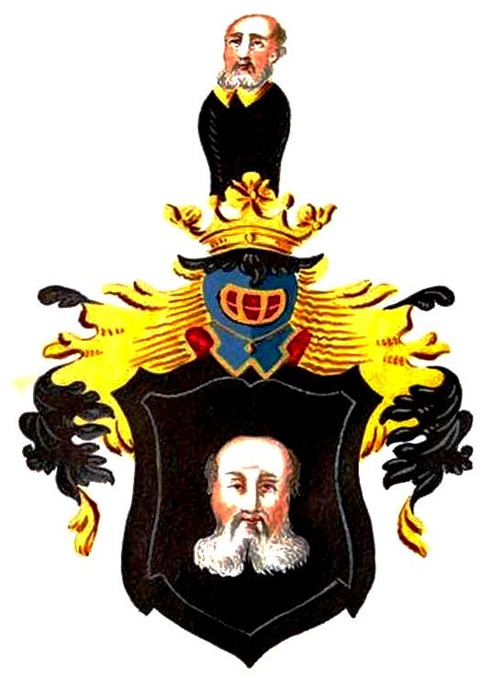Carl Anton von Barth (1758-1797)

Gotha Illuminati Research Base (here and here).
Mayor, Munich; Order Name “Marcellus”
(1758 Munich – 1797) In 1780, he was the head of the city archives and a member of the Bavarian Academy of Sciences in Munich. From 1782 to 1786, he served as mayor and chief judge, and in 1786, he became a landscape chancellor.
In January 1782, he became a member [of the Illuminati] in Munich, but resigned in 1785.
***
I wasn’t aware von Barth was mayor of Munich, from 1782 to 1786, when I wrote a short bio of Barth in Perfectibilists (2009), p. 233-4.
Barth, Karl Anton von (1758 Munich, Germany – 1797)
Marcellus
Von Barth was a prominent member of the Bavarian Academy of Sciences, which was almost completely infiltrated by the Illuminati. He was a lawyer and judge in Munich, managed the town archives and was involved with the day-to-day politics of the Academy. [37]
Note 37 is cited to a dissertation on the Bavarian Academy of Sciences that proved very helpful for biographical information: Alexander Ecker, Recht und Rechtsgeschichte in der Bayerischen Akademie der Wissenschaften von 1759 bis 1827 (2004).
“Karl Anton von Barth was admitted as a full member of the historical class in 1780 and was one of the influential Munich members who determined the fate of the Academy,” wrote Ecker. He wasn’t much of a scholar, however, and was “more interested in current politics,” a careerist, “and devoted his energy to his [official] posts” (p. 108) .
There’s a very interesting section about the Illuminati in Ecker’s dissertation — “2.8. The Role of Jurists in the Illuminati Crisis,” on page 121. Writes Ecker:
The access of the Illuminati to the Academy and the so-called Illuminati crisis, which put the Academy and especially the historical class in great distress, has already been extensively portrayed in the literature on the Academy. For the present work, the task remains to briefly discuss the role of the lawyers in this context.
A whole series of members of the Electoral Academy belonged to the Order founded by Weishaupt. Among the lawyers of the Academy who were members of the Illuminati Order in the historical class were Egckher [sic], Barth, Montgelas, and Johann Nepomuk Krenner. As a member of the Belletristic [literature] class, Eckartshausen and, moreover, the Vice President of the Academy, Savioli-Corbelli. In particular, the influential full members of the Academy, whose number was limited by the statutes, were a coveted object of the secret societies and thus also of the Illuminati. Evidence is lacking for the assertion that the Illuminati order specifically tried to sneak its members into the Academy. However, the Academy was systematically infiltrated by the Illuminati. In the historical class, the director Vacchiery, who was known as an opponent of the Illuminati, was practically surrounded by reputable members of the Order. Barth, Egckher [sic], and, after his transfer, Montgelas, were members of the Order. The fact that the Illuminatus Montgelas was intended as the keynote speaker for the public Academy celebration in the fall of 1785 can be interpreted as a clear indication of the influence of the Illuminati. However, this influence ultimately led to the fact that the Academy fell into a serious crisis when the Illuminati were persecuted under Karl Theodor as an organization that subverted the state and was contrary to religion. Nevertheless, this phase passed relatively smoothly for the lawyers mentioned above, and they largely escaped sanctions.
Eckartshausen, for example, broke away from the Illuminati early enough. Krenner also managed to switch sides in time. Egckher [sic] was spared serious reprisals as a result of his transfer to Amberg. The court counselor Montgelas also remained in office and dignified. However, when the stigma of his membership in the Order seemed to prevent further advancement under Karl Theodor, he moved to Zweibrücken in 1787.
Karl Theodor, who had become suspicious because of the academy’s strong involvement in the Illuminati crisis, seriously considered merging the Munich academy with what he mistakenly assumed to be the older Mannheim Academy. The Academy then drew up “a brief outline of the academic works, their history and a catalog of the members” which the honorary president, Count von Haimhausen, who had rendered outstanding services to the Academy, presented to the Elector. Vacchiery was able to win over his father-in-law, Frhr. v. Kreittmayr, for the preservation of the Academy. His intercession ultimately played a significant role in the Academy emerging from this crisis without serious damage. This allowed the Academy to keep the Illuminati within its ranks. This crisis had no effect on the work of the Academy once its continued existence had been secured. (emphasis mine)
The “Egckher” mentioned in the dissertation is actually the noble Ludwig Felix Johann Nepomuk Freiherr von Ecker von Eckhofen (1757-1826), a censorship and court counselor.
According to Ludwig Wolf, in his 2015 paper Das Barthschlössl in Perlach und die seinerzeit berühmten Besitzer [The Barth castle in Perlach and its once famous owners], “Carl Anton von Barth comes from one of the oldest patrician families, already documented in Munich since 1272.”
In the late Middle Ages, the family became very wealthy through wine and salt trading and owned extensive property in the city and countryside. Since May 26, 1531, Harmating Castle has been the ancestral seat of the Barths. In 1681, they were ennobled as Barons, and their burial site was located in the Epiphany Chapel of the Frauenkirche [in Munich]. (p. 4)
Barth wrote a “History of the City of Munich,” which received much attention and gained him admission at the Bavarian Academy of Sciences — the Pope took notice as well.
On the occasion of Pope Pius VI’s visit to Munich, the magistrate was invited to a “hand kiss” on April 30, 1782.
At this ceremony, Carl Anton von Barth gave an excellent speech in Latin before the pontiff. The people of Munich were so enthusiastic about the pope’s visit that sons were baptized with the name Pius during this time. Carl Anton’s son Johann Nepomuk [himself a member of the Illuminati], born in Perlach, also received the name Pius as his third given name at his baptism on February 4, 1787 in the Frauenkirche. (ibid, p. 2)



















